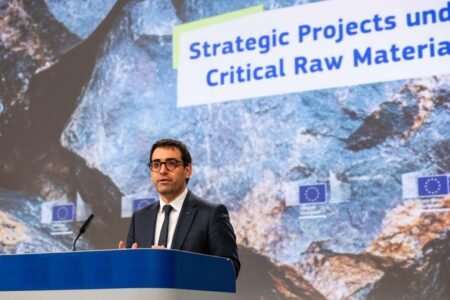The use of animals in scientific experiments could soon be reduced by new legislation, approved by the European Parliament’s Agriculture Committee on Monday, which aims for a balance between improving animal welfare and assisting research against diseases.
If endorsed by the full Parliament and Council of Ministers, the new legislation would require competent national authorities to assess the animal welfare implications of each experiment done, with a view to promoting alternative testing methods and reducing the levels of pain inflicted on animals.
The new legislation would also tighten up rules on the use of primates in scientific experiments, inter alia by classifying tests according to severity and specifying the inspections necessary to ensure compliance.
The report by Elisabeth Jeggle (EPP, DE), approved in committee with no votes against and four abstentions, aims, for ethical reasons, to reduce the number of animals used for scientific purposes, without putting obstacles in the way of research. The approved text reflects an agreement between MEPs and the Council.
More effort needed to devise alternative methods
All Member States must ensure that whenever an alternative method recognised by Community law it is used instead of animal testing, says the report. Furthermore, approval should be granted only to tests that use killing methods which cause the least pain or distress, while still providing scientifically satisfactory results, it adds.
The use of animals in scientific experiments would therefore be allowed for basic research and for research into, for example, human, animal or plant diseases, drug testing and species preservation, and also for higher education and forensic investigations.
To allow flexibility, a “safeguard clause” has also been introduced, under which national governments will retain the right to derogate from these rules, but only for exceptional and scientifically-justifiable reasons and after having informed the Commission and other EU Member States.
Using fewer primates without compromising medical research
The proposed ban on using great apes such as chimpanzees, bonobos, gorillas and orang-utans for scientific testing was generally endorsed by committee members. But the measures, as proposed, would also restrict the use of other primates such as ouistitis and macaques and may therefore hamper European scientific research on neurodegenerative illnesses such as Alzheimer’s, according to MEPs. The committee’s revised text therefore allows the use of such primates if there is scientific evidence that the goal of the test cannot be achieved without using these species.
Test severity classification
The new legislation would introduce categories of pain inflicted during a test (“non-recovery”, “mild”, “moderate” or “severe”), under an amendment approved by the Parliament at its first reading of the legislation.
To avoid repeated suffering, the European Commission proposed to allow the same animals to be re-used only if the test entails pain classed as “up to mild”. MEPs feared that applying criteria that are too strict would result in even more animals being used for tests, which would defeat the object. They would therefore allow the re-use of animals even after tests involving “moderate” pain, provided a vet is consulted first.
Inspection and review clause
To ensure the provisions are implemented, MEPs stressed the need for regular and effective inspections of bodies that carry out scientific experiments using animals.
The agreement reached with Council obliges national governments to ensure inspections are performed on at least 33% of laboratories using animals, some of which should be unannounced. The Commission would also be in charge of controlling national authorities responsible for inspections.
In addition, the Commission would be required to evaluate and review the proposed legislation five years after its entry into force.
Next steps
The text as approved by the Agriculture Committee reflects a deal reached with the Council for approval at the second reading. The full Parliament will have to vote in September, followed by Council. The directive will enter into force three years after its final approval.





